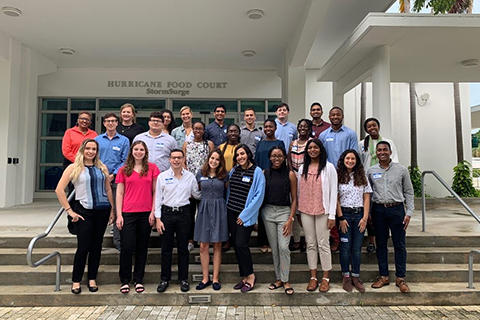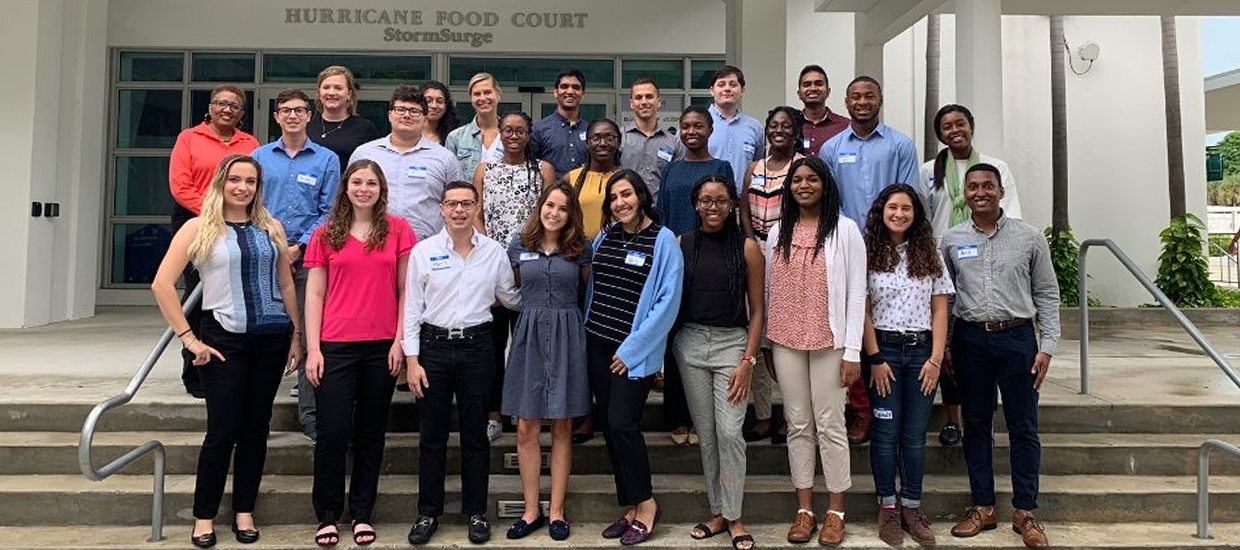The Undergraduate Honor Council was established in 1986 through a student referendum with the goal of upholding our university to a higher standard both inside and outside the classroom, as articulated through the Honor Code.
Academic Integrity Policy
Our purpose is twofold: to educate the University community and to adjudicate. The students who established the Honor Code were committed to enhancing the academic quality of our institutions and creating an environment where cheating plagiarism, collusion and other forms of academic dishonesty would not be tolerated.
The Council consists of representatives from the undergraduate schools selected each year for a one-year term by the Selection and Appeals Committee.
Applications Open Each Spring Semester
For more information contact the Undergraduate Honor Council at honorcouncil@miami.edu or 305-284-5354.
Connect with us on Instagram.
Is Academic Dishonesty a Problem?
Yes! Consider these statistics courtesy of US News and World Reports:
- In a recent survey conducted by Who's Who Among American High School Students, 80% of featured students admit to cheating at least once. 50% said that they did not believe that cheating was necessarily wrong and 95% admitted that they had never been caught.
- 84% of college students believe they need to cheat to get ahead in the world today.
- 90% of college students believe that cheaters never pay the price. However, 90% also say when people see someone cheat, they don't turn them in.
- "Cheating is more common in any situation where it is easy to do, the likelihood of detection is low, and rewards for cheating are high" (Lester and Diekhoff, 2002).
- Honor Codes are connected with lower level of cheating among students (McCabe, Trevino, & Butterfield, 2001).
This dishonesty spreads to the "real world" if not corrected in college. A survey by SelectJobs.com, a high-tech industry employment site, 75% of job seekers admitted to lying on their resumes, 40% admitted to omitting past jobs, and 12% admitted to padding education credentials.





